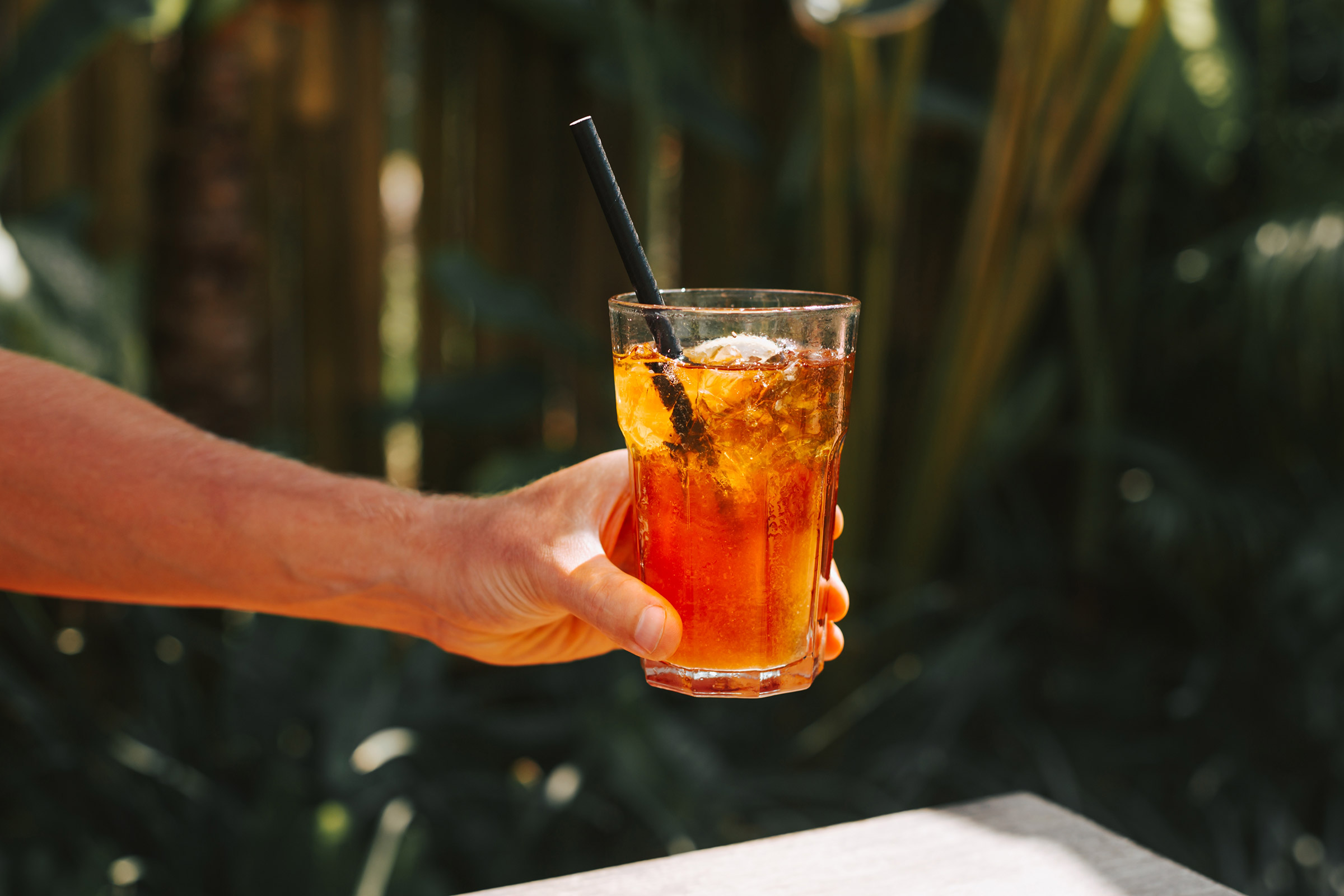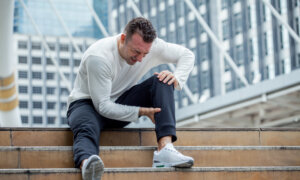Scorching heatwaves were sweeping the southern and southwestern United States, with most areas experiencing highs over 100 degrees Fahrenheit. Extreme heat can put cumulative stress on the body, increasing the risk of heat-related illness and death.
In this article, a traditional Chinese medicine (TCM) practitioner explains how heat exposure affects health and outlines several common cooling methods that can inadvertently cause harm.
Increased Risk of Diabetes and Kidney Disease
Extreme heat increases the risk of chronic diseases such as diabetes and cardiovascular disease by putting heat stress on the body.
A study presented at the American Heart Association’s “Epidemiology, Prevention, Lifestyle & Cardiometabolic Health” Scientific Sessions in March found that extreme heat may impair the body’s adaptive immune response and promote systemic inflammation, potentially harming cardiovascular health.
Because of impaired heat dissipation, people with diabetes are at higher risk of heat-related illnesses during heatwaves and physical activity. One study showed that diabetic patients have weaker skin blood flow and sweating responses in high-temperature environments, which can severely affect cardiovascular regulation and blood sugar control. Individuals with poor blood sugar control and diabetic complications are particularly vulnerable to such heat stress.
High temperatures are also a known risk factor for kidney disease. When the body regulates temperature and blood circulation to cope with increased temperatures, it puts stress on the kidneys, impairing their function. Additionally, continuous heat stress can lead to chronic kidney disease.
How Heat Affects Health From a TCM Perspective
Kuo-Pin Wu, the superintendent of Taiwan Xinyitang Heart Clinic, told The Epoch Times that during the hot summer months, it is crucial to avoid relying on air conditioning or cold beverages. Using these can hinder the body from expelling toxins, allowing cold air to invade and cause various health issues.
He explained that, according to TCM, wind is considered a leading cause of various illnesses. The body adjusts to environmental temperatures by opening or closing pores to regulate temperature. If wind blows directly on the body during hot weather, it can enter the open pores and gradually spread through the meridians, potentially affecting the entire body.
Mr. Wu added that TCM suggests there is a correspondence between humans and the Earth. During scorching summers, the Earth’s yang (heat) energy covers the surface, while the underground remains cool, making caves a refreshing shelter. Conversely, during the winter, the Earth’s yang energy sinks underground, making caves feel warm.
Similar principles can be applied to the human body. During summer, the body’s pores open up, allowing energy to dissipate on the surface and facilitating sweating. However, the internal organs remain relatively cool. Therefore, following natural law, it is important to encourage sweating in summer to expel internal coldness and toxins. This promotes relaxation and overall well-being. If sweating is minimal throughout the year, toxins are less likely to be expelled, potentially leading to health issues over time.
In other words, during hot summer days, any cooling methods that involve rapidly closing pores, inhibiting sweating, or allowing cold air to enter are detrimental to the body.
7 Improper Ways to Cool Down
Improper methods of cooling down can adversely affect health. Try to avoid the following methods when cooling down:
1. Direct Air Conditioning
Mr. Wu explained that when the body is hot and sweating, the pores are open. If air conditioning is used to cool down, the body’s pores will contract, preventing the heat inside from escaping. This can lead to headaches, swelling, vomiting, or abdominal pain.
He shared two clinical cases. One patient slept with an electric fan blowing toward their body from their feet and woke up on the fourth morning with facial paralysis. Similarly, another patient fell asleep on a bus with strong air conditioning, resulting in facial paralysis after their face was exposed to cold air for one to two hours. According to TCM, this is believed to be caused by meridian blockage, resulting in poor blood circulation.
Additionally, some people develop “air conditioning flu” from prolonged exposure to air conditioning at work. Mr. Wu recommends wearing a light jacket when moving between indoor and outdoor spaces in summer to prevent cold air from directly entering the body. This allows the body’s heat to dissipate gradually over about five minutes.
2. Cooling the Back of the Head
The Fengfu acupoint is located at the back of the head. When cold wind or air enters through this acupoint, it can trigger headaches and other symptoms.

The location of the Fengfu acupoint. (The Epoch Times)
3. Cold Showers When Sweating
When your body is covered in sweat, your pores are wide open. Cold water or air can then rush in, potentially leading to rheumatic arthritis in the future. It is advisable to take lukewarm or warm showers during the summer.
4. Air-Drying Hair
Some people tend to let their hair air dry during hot weather. This process draws heat from the body to evaporate moisture, which can affect the scalp and lower body temperature, potentially causing migraines over time. It is better to use a hair dryer than let hair air dry.
5. Wet or Cold Towels on the Back of the Neck
While this may feel refreshing and cool, it allows cold or dampness to enter the body. If you must stay dry, wipe off sweat with a towel, but remember that sweat helps us cool down as it evaporates.
6. Cold Beverages Immediately After Exercise
This habit can be very harmful. When body temperature is elevated, rapidly cooling down with cold drinks can cause the chill to travel from the throat to the trachea and then to the stomach. This sudden influx of cold can damage the trachea and lungs and may even
affect the heart due to the localized drop in temperature.
7. Ice-Cold Drinks After Meals
This can cause fats in the stomach and intestines to solidify, hindering digestion and affecting metabolism. Additionally, the rapid alternation between hot and cold can be hard on the body, potentially leading to impaired spleen and stomach functions, poor digestion, reduced appetite, and—in severe cases—diarrhea, abdominal pain, and other gastrointestinal disorders.
The Importance of Staying Hydrated and Exercising in Summer
Deng Zhengliang, the director of the Jide Traditional Chinese Medicine Clinic in Taiwan, told The Epoch Times that staying hydrated is crucial in the summer. Drinking plenty of water in hot weather is essential for maintaining the body’s fluid balance and preventing dehydration.
Mr. Wu also emphasized that despite the summer heat, it is best to drink hot water to help induce sweating. Of course, this depends on individual constitution. For those who typically sweat a lot, drinking hot water will not make much of a difference, so it is best that they drink water at room temperature. Nonetheless, they should avoid drinking ice water at all costs.
For those who habitually drink ice water, it is advisable to let beverages from the refrigerator sit at room temperature for at least an hour. This allows the cold to dissipate before drinking, making it less harmful.
Additionally, Mr. Deng recommends engaging in moderate exercise during the summer, as it can improve blood circulation, boost metabolism, and help expel toxins. However, in hot weather, it is crucial to exercise in cooler environments and during cooler times, as well as to engage in lighter activities to avoid overexertion and reduce the risk of heatstroke.
Best Ways to Eat Fruit During the Scorching Summer
Mr. Wu emphasized that most fruits have cooling properties, especially when consumed on an empty stomach before breakfast, which can increase the body’s susceptibility to coldness and potential harm. While eating fruits immediately after breakfast is acceptable, the optimal time to eat them is after lunch when the body’s temperature is higher. This timing allows for the intake of cooler foods, including fruit. Eating fruit after lunch helps regulate blood sugar levels and mitigates its cooling effects.
He stressed that while some of the practices mentioned in this article may be habitual for many people, it is crucial to modify them as they are vital for maintaining health during the hot summer season.
Groups Most Vulnerable to Extreme Heat
The following people are more susceptible to adverse effects from heat:
- Infants and older individuals: Their temperature regulation systems are underdeveloped or deteriorated, making them susceptible to heat stress.
- People with chronic illnesses: Certain medications may interfere with the body’s ability to regulate temperature changes, thereby exacerbating underlying conditions.
- Workers frequently exposed to high temperatures: Working in high-temperature environments characterized by intense sunlight and high physical exertion increases the risk of heat-related issues such as heat cramps, fainting, or heatstroke. Outdoor workers should hydrate, wear protective clothing or use sunscreen when necessary, and seek shade during breaks to stay cool.














